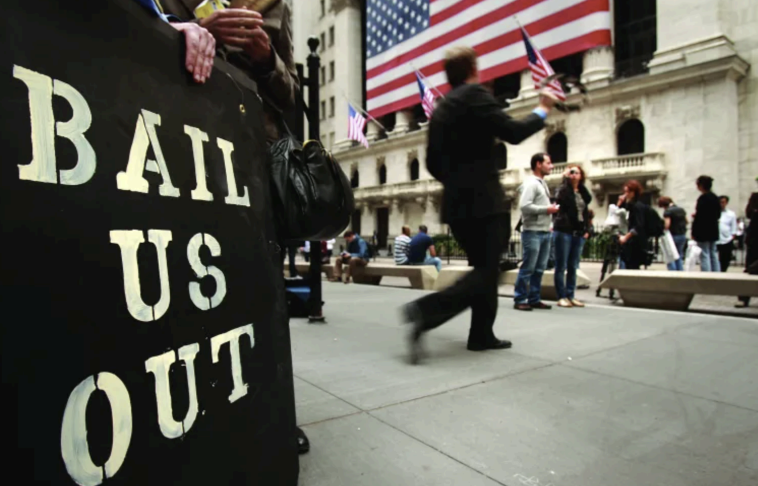Policies are still vague, but interest rates are already coming down and the certainty of an election outcome isn’t nothing.
A wave of scandals did little to slow former President Donald Trump’s momentum on Tuesday night, making the Republican the presumptive president-elect once more.
While analysts and social commentators try to reverse-engineer how the Democrats and Kamala Harris’s efforts for the White House fell so far short of their goals — handing Trump both the electoral college and the popular vote in preliminary estimates — leaders in commercial real estate are seeing potential.
This boded well for the real estate market, especially with the Federal Reserve expected to cut interest rates another 25 basis points on Thursday.
“With the election results settled, the real estate market will benefit from the reduction in uncertainty,” said Adelaide Polsinelli, vice chair of Compass, in an email. “Lower capital gains taxes, which Trump has previously supported, could encourage more frequent buying and selling, potentially increasing transaction volume across residential and commercial real estate.”
If successful, Trump’s proposal to raise import tariffs by 10 to 20 percent is seen as a sign that industrial real estate could have another wave of success in the industrial market as companies seek to reduce the increased cost of overseas manufacturing.
“Trump’s long-standing advocacy for bringing manufacturing back to the U.S. suggests a likely boost in demand for industrial spaces like logistics hubs, warehouses, and manufacturing facilities, as companies may need more space to accommodate domestic production and distribution needs,” Polsinelli added.
The stock market already reacted with enthusiasm to Trump with share prices spiking and the Dow Jones Industrial Average gaining 1,508 points, amounting to a 3.57 percent one-day increase.
Briggs Elwell, CEO and co-founder of RLTYco, which provides financial and tax services to real estate clients, sees the stock and bond markets’ spike as a temporary bump, with more sustainable financial benefits expected later.
“At the end of the day, when you take out all the emotion and you exclusively look at the financial components of the election, the markets are saying that this is a positive for real estate,” Elwell told CO. “Knee-jerk reactions happen, but the reality is that the frontrunner driving the market surge is the banks, and they’re banking on the fact that under a Trump administration, you have a trend towards lower rates and less regulation.”
By Wednesday morning, Trump had a 5 million vote lead in the national tally, which would be the first time since 2004 that a Republican won the popular vote. The Democrats also lost control of the U.S. Senate and may have lost their chance at a majority in the House of Representatives, creating a scenario reminiscent of Trump’s victory in 2016.
Leland Collins of FTI Consulting expects Trump’s administration to prioritize tax policies related to the Tax Cuts and Jobs Act (TCJA), also known as the “Trump tax cuts,” which are set to expire in 2025.
“Real estate’s in a really precarious spot here,” Collins said in an interview. “I will caveat everything by saying that we don’t know the House right now, and the House really will propel how much of his policy actually gets enacted. What I’ve been hearing from my D.C. colleagues is that 2025 will be all about tax.”
Collins’s colleagues and clients were concerned about potential tax increases under Harris, such as carried interest being taxed as ordinary income.
“There was a lot of discussion from Democrats about increasing, or rather limiting, how much carried interest could be classified as long-term capital gains,” Collins noted. “Now, those changes may no longer be on the table. Trump has not made any tax proposals yet, and we are still waiting for his 100-day plan.”
“I do see this as being positive,” Collins added. “It should spur investment into U.S. real estate and private equity funds, because tax rates are lower. And it takes a lot of restructuring off the table that clients would have had to consider.”
Tali Berzak, a broker with Compass, believes that investors may shift their focus from stocks to more stable investments like real estate.
“I can tell you that almost all the people I work for were hopeful for [a Trump] administration, and I think some of that has to do with their perspective on how that will help the buyer and investor pool,” Berzak said. “There’s something about a Trump administration where policies are unpredictable, so investors might choose to park their money in assets.”
However, by midmorning, real estate stocks were underperforming compared to the broader market. Notable declines were reported for CBRE (-2.6%), Cushman & Wakefield (-0.1%), Newmark (-2.4%), and JLL (-5.4%), according to SeekingAlpha. Residential brokerages experienced even steeper drops, with Redfin (-3.5%), Zillow (-5.5%), Compass (-7.1%), and Opendoor Technologies (-4.4%).
Alexander Goldfarb of Piper Sandler suggested that real estate could benefit from a “lighter regulatory touch” under Trump, which could favor Newmark CEO Barry Gosin, given Howard Lutnick’s involvement on Trump’s transition team.
“Barry and Howard have a wonderful relationship and built a great firm,” Goldfarb told Crain’s. “But the time might be right for a change.”
Shaun Pappas of Starr Associates believes that the election’s resolution will prompt commercial real estate investors to make more confident moves.
“There’s a perception of Trump being good for real estate — it’s where he came from,” Pappas noted. “I think now we’re at a point where we know what we’re in for, which provides a foundation of stability.”
Adam Henick of Current Real Estate Advisors echoed Pappas’s sentiment, emphasizing the importance of certainty.
“I think that with everyone’s political views aside, having the election behind us is a healthy step for all markets,” Henick said. “Markets like certainty, and that’s what we got on election night.”













